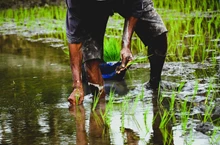
Winter is in full swing, and Ayurveda says that eating cinnamon, saffron, nutmeg, and other spices is beneficial during this season because they keep us warm and protect us from bacteria-borne illnesses.
However, did you know that market participants are adulterating these spices in order to maintain the demand and supply chain? As consumers, it is critical that we understand the consequences of food adulteration and refuse such products.
To make it easier for the average person, the Food Safety and Standards Authority of India (FSSAI) has launched a Twitter campaign called #DetectingFoodAdulterants. Under this, every week they share a quick test that you can try to check whether your food is adulterated or not. This week, they have shared a test video on how to detect dried tendrils of maize cob in saffron.
Consequences of Consuming Maize Cob
According to experts, eating maize cob can cause stomach upset, bloating, gas, and diarrhoea. It contains trace amounts of phytic acid, which may inhibit mineral absorption in the body.
How to Spot Adulteration in Saffron
-
Fill a glass jar halfway with hot water (70-80 degrees).
-
Garnish with a few strands of saffron.
-
The unadulterated saffron will slowly release its characteristic saffron colour into the water.
-
The adulterated saffron will immediately discolour the water.
According to studies, food adulterants are so toxic that they can cause heart failure, liver disorders, kidney disorders, and a variety of other health problems. Beware of toxic adulterants, and you can now detect food adulteration at home in foods such as rice, turmeric, black pepper, and sugar.











